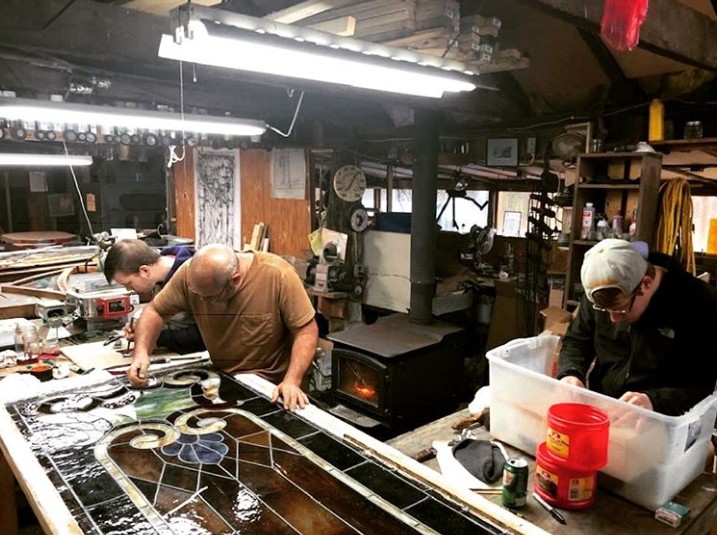
Working by the wood stove on a cold rainy morning.
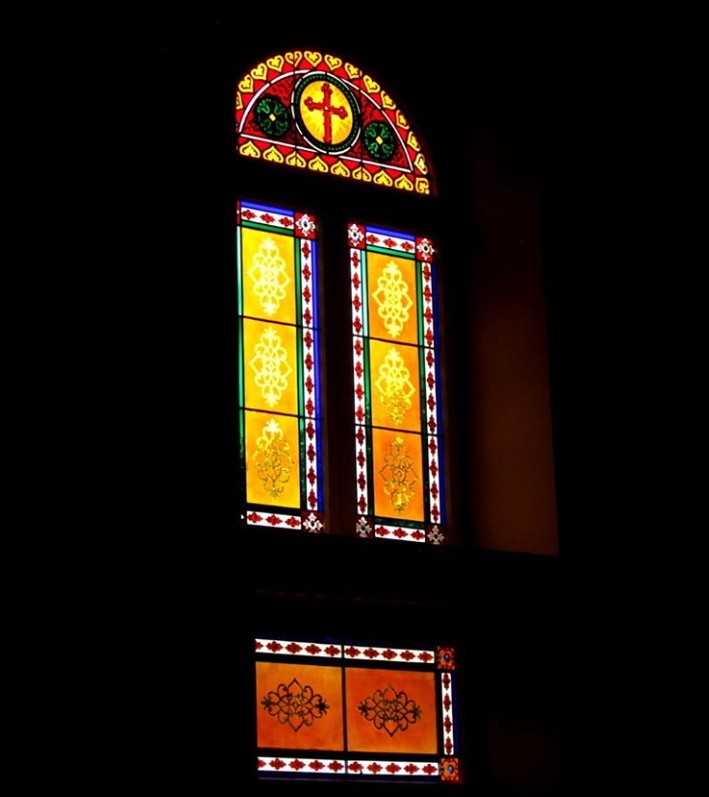
One of our restoration projects completed several years ago.
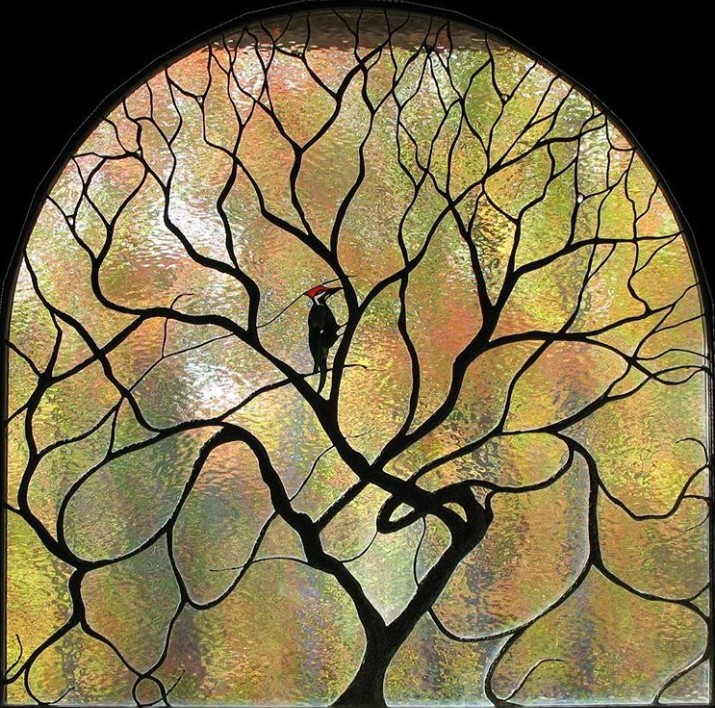
A window we created to go over a jacuzzi.
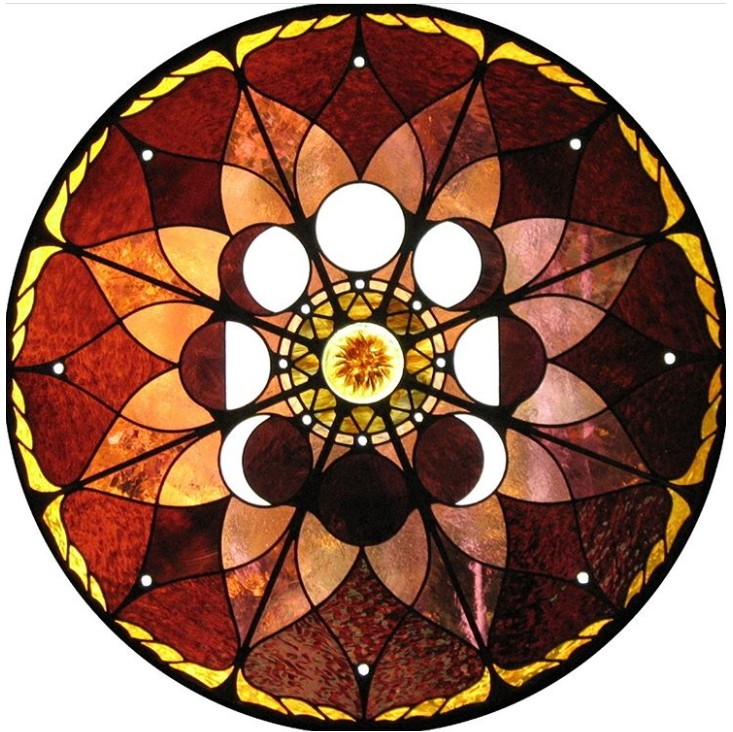
A window we created for the foyer of a new home.
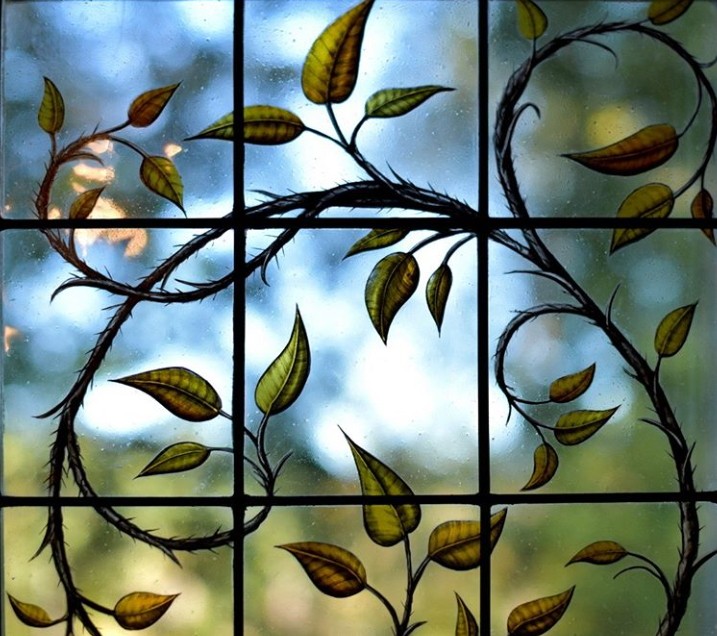
A section from one of our painted windows.
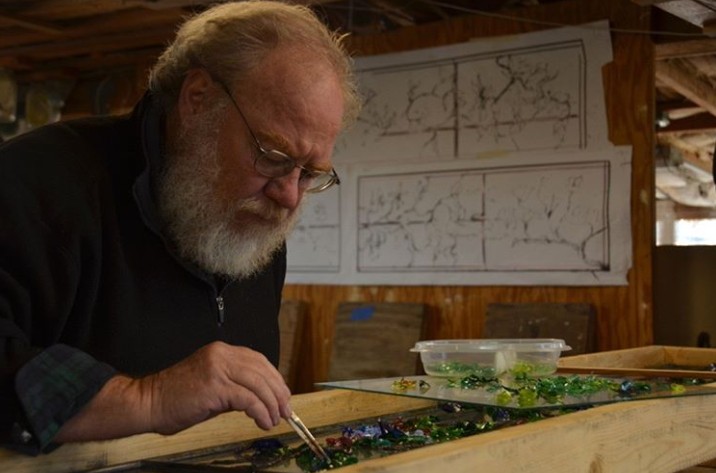
Concentration and focusing play a large role in our work.
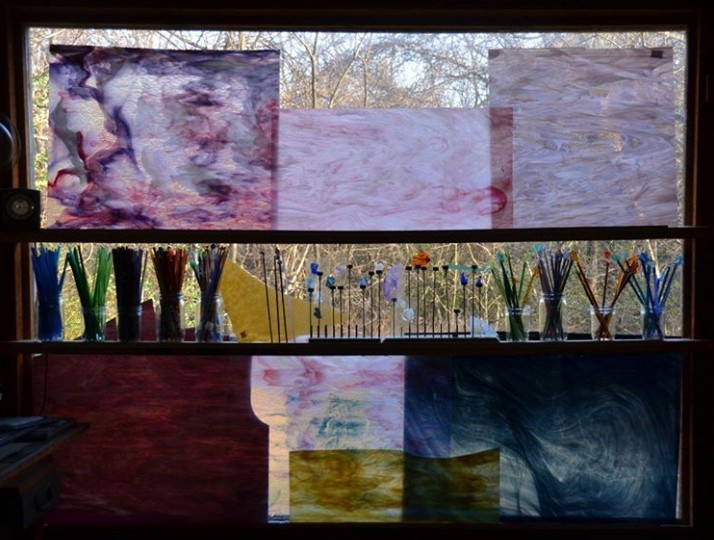
Our north-facing window that we use to study the glass for one of our current projects.
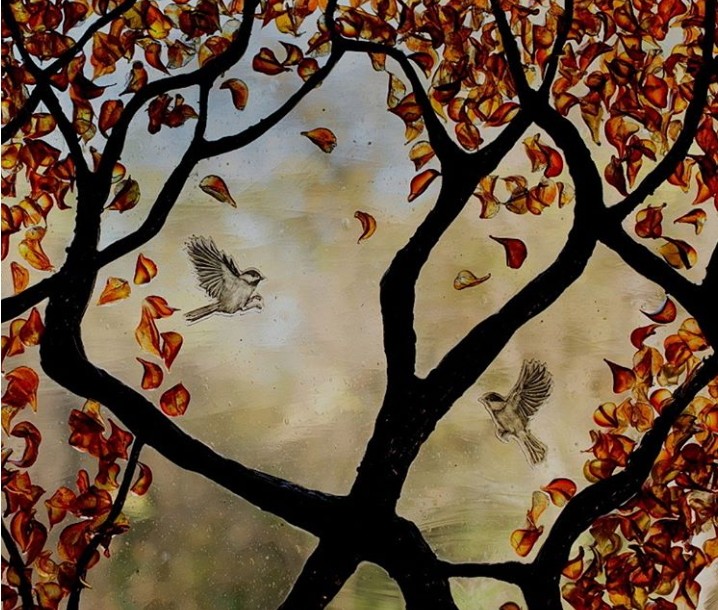
Embellishing one of our windows with chickadees.
Painting by Daniel White.
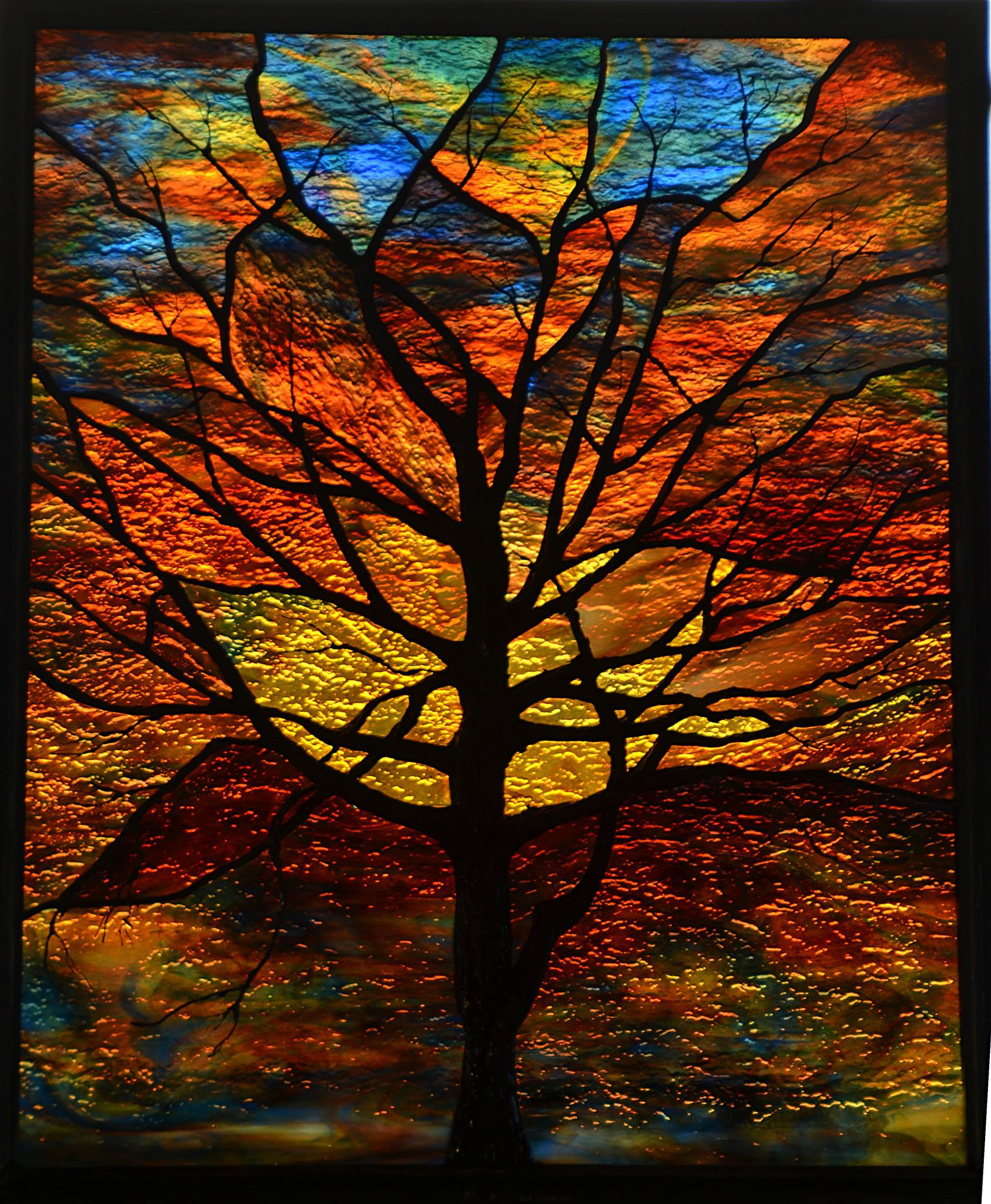
This window was made using Uroboros 65-95. By pulling from different areas of several sheets, we were able to get the variation we wanted to create this window.
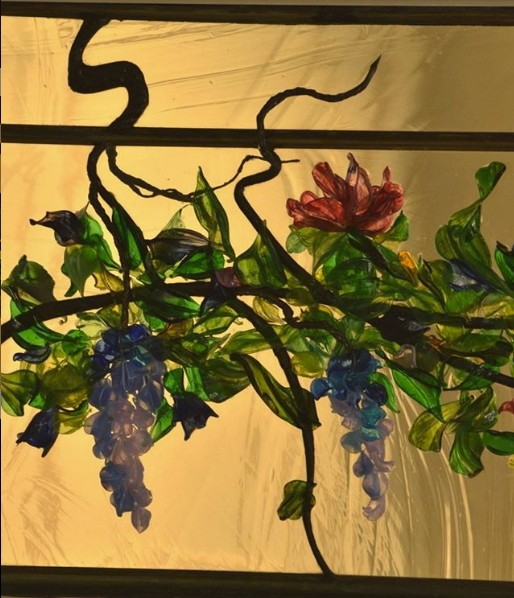
A section from one of our flameworking projects.
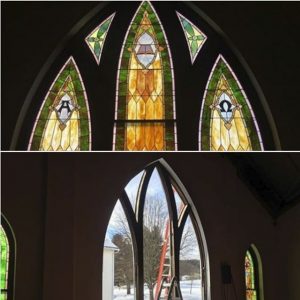
One of our current restoration projects.

A medallion for some windows we created for a carriage museum, painted by Daniel White.

A beveled glass window I made over 25 years ago, using our 1915 Henry Lang machinery.

A flameworking study that I gifted to my wife.

An example of our flameworking.
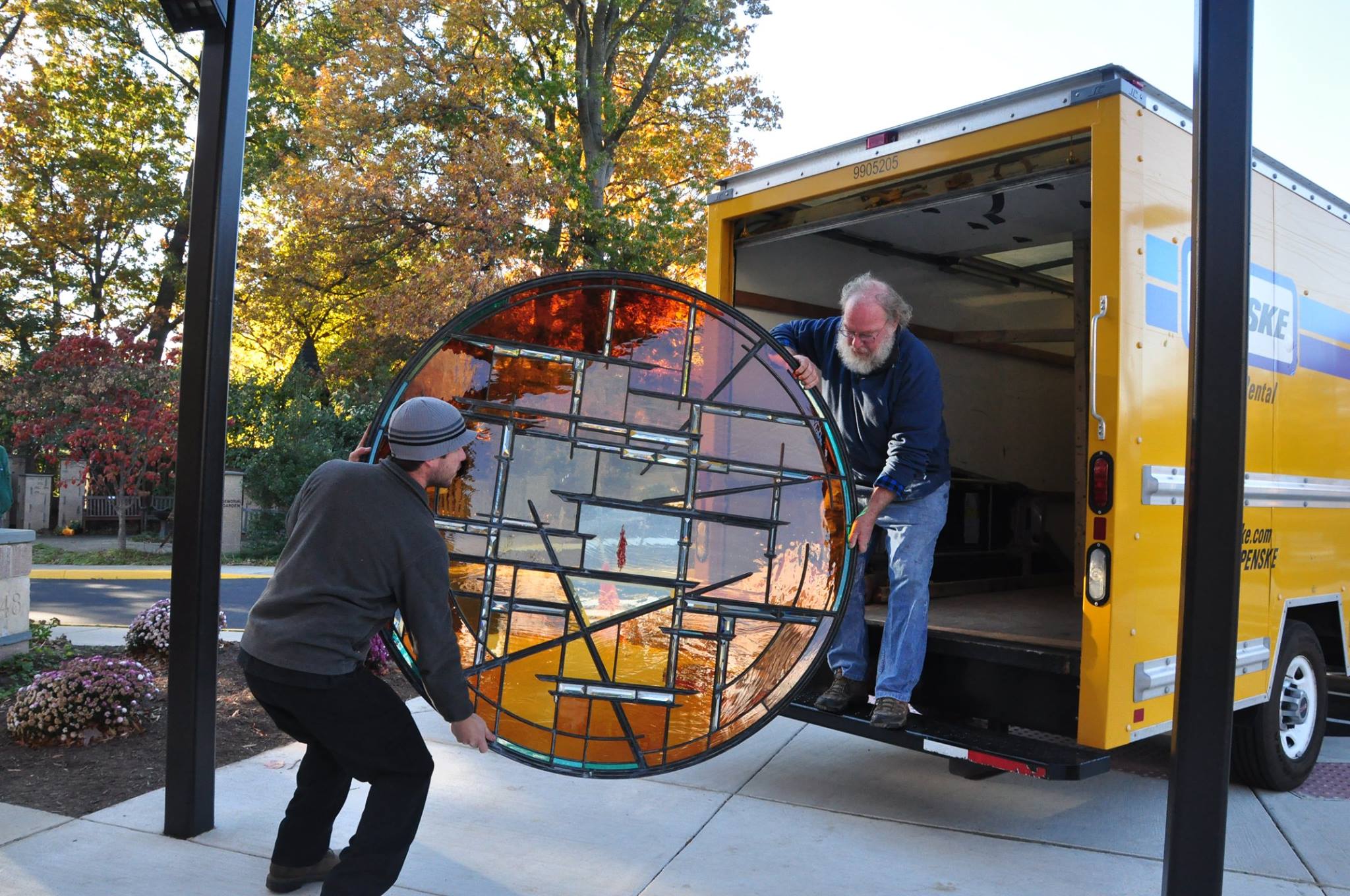
Delivering our window to the Unitarian Universalist Church of Arlington in Arlington, Virginia.

This window is a combination of many of the techniques we have developed over the years. It is a reflection of the sharing of ideas and processes that are a part of our everyday life in our studio.
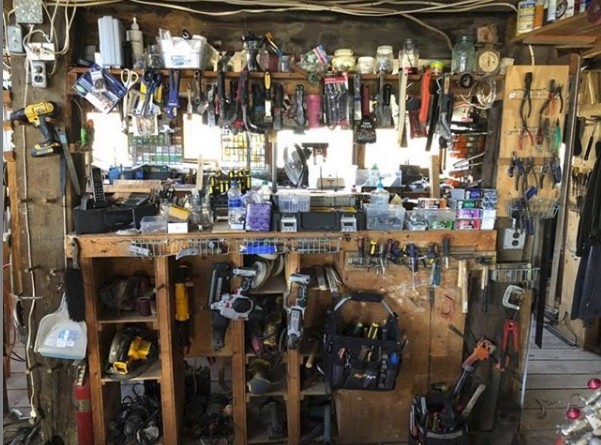
One corner of our shop. (If you can’t find it, you can’t use it)
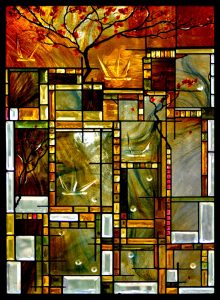
The finished window.
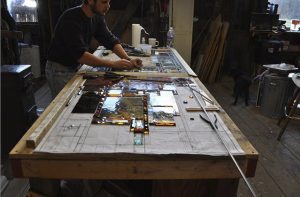
Beginning to assemble one of our contemporary windows.
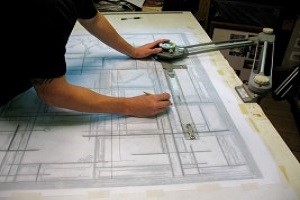
We’ve been finalizing designs for a few different projects currently in the shop, and are excited to have the chance to explore and express our art.
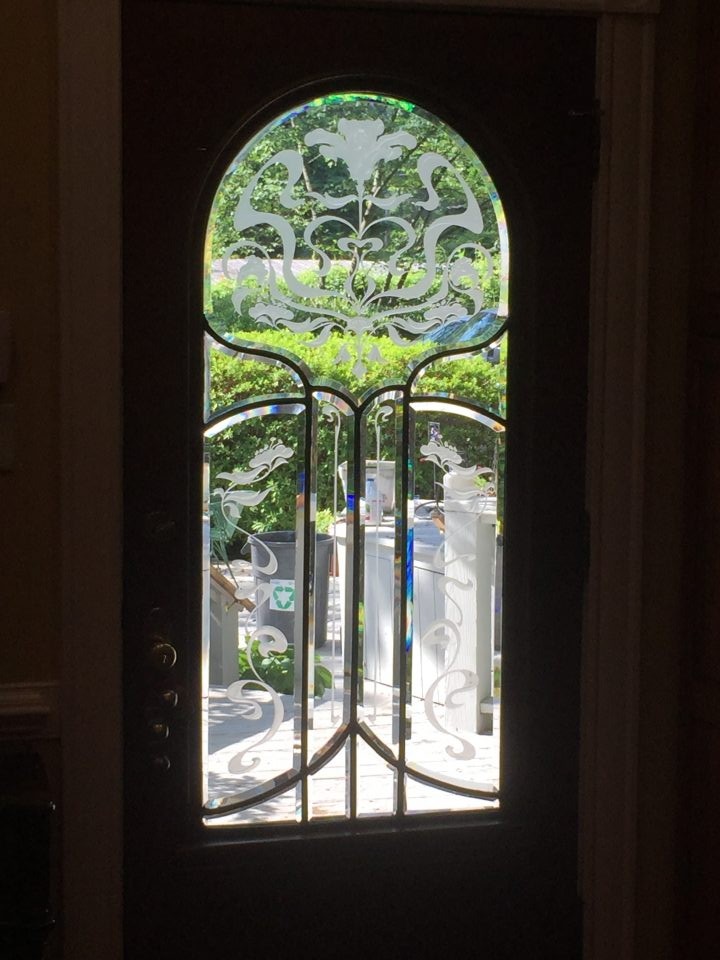
The other day I did some minor repairs to a door Geraldine Powers and I created 35 years ago. We were partners back then. Jerry did the designing and I was the craftsman.

A recent piece we crafted for a private residence.
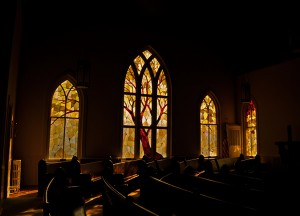
This photograph shows a third of the windows in this sanctuary. By using a hand blown translucent glass from West Germany, we were able to blend the trees and bushes on the exterior into our concept. The striations in the glass give movement to the windows as one walks through the sanctuary. This was my first complete church project, over 30 years ago.
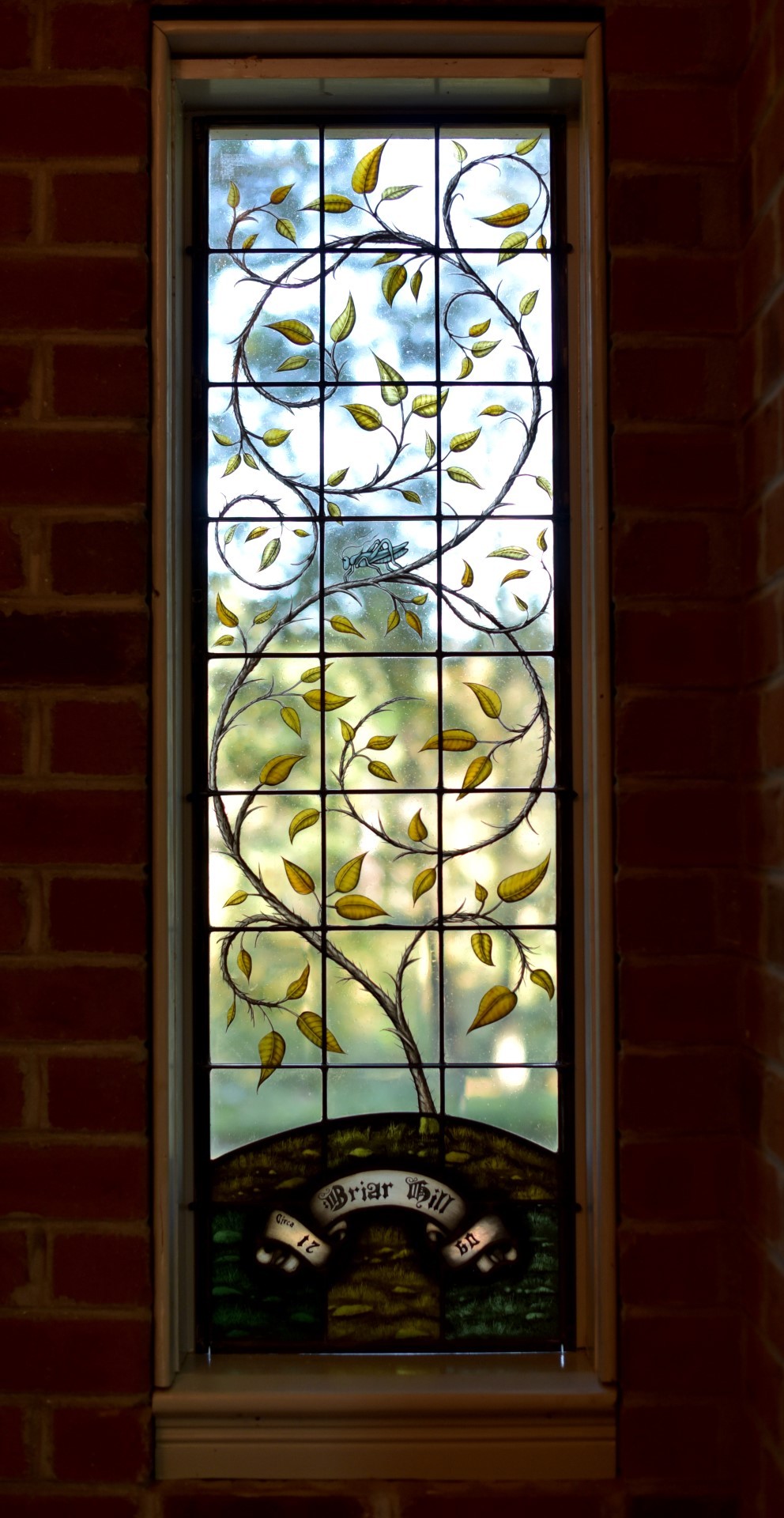
This wonderful window was commissioned for a historic home in Crewe Virginia, to complement the finished renovations. Coming forth from a hill, the briar vine weaves up and through the geometric window, giving this piece a light, airy feel. Painted on completely transparent German mouth-blown glass, this window allows the room to remain light while creating a jewel in this home.

A solder sculpted and flameworked Autumn tree stained glass window we created for a home in Boston, MA.

This wonderful window is a lovely example of how glass is uniquely able to capture the movement and beauty of nature. The dogwood blossoms and leaves against the interweaving sculpted solder branches bring this piece to life. The flameworked blossoms and leaves free us from traditional lead lines, allowing us to explore the playfulness and spontaneity of a natural tree.

I created the beveled glass door on the left for a gentleman who was starting his own real estate investment company 30 years ago. He has recently moved into a much larger office with a larger door. One of our projects this month was to modify the original glass with our 1915 Henry Lang beveling equipment and install it in the new opening.
The office staff had become quite fond of their entry door. Many consider it their signature piece.
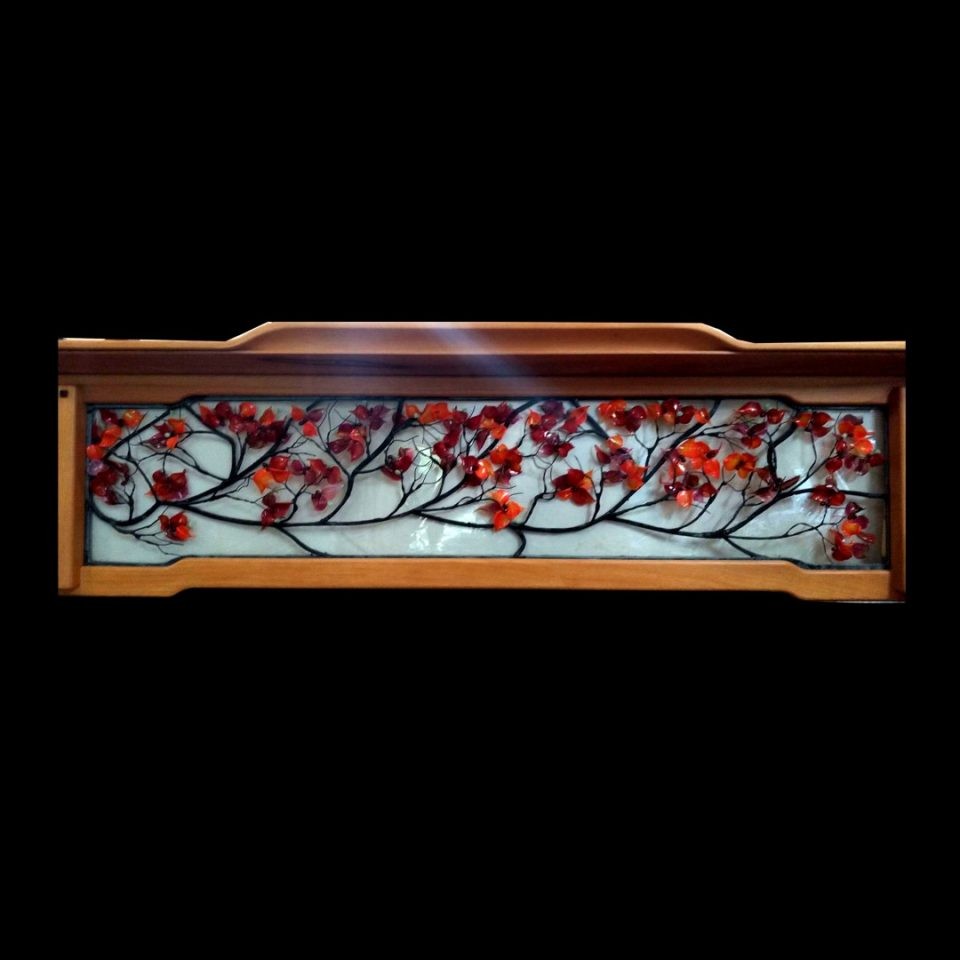
One of my first lampworking projects, a panel for a pool table lamp depicting the fall leaves of a Dogwood tree.

I created this wall hanging around 1985 when I used a simple point-and-shoot camera.
I made the structure out of bronze, cut various stones for the inserts, silvered, and solder sculptured the tree area.
This was a rare attempt to create something different for a hallway where I only had reflective light to work with.
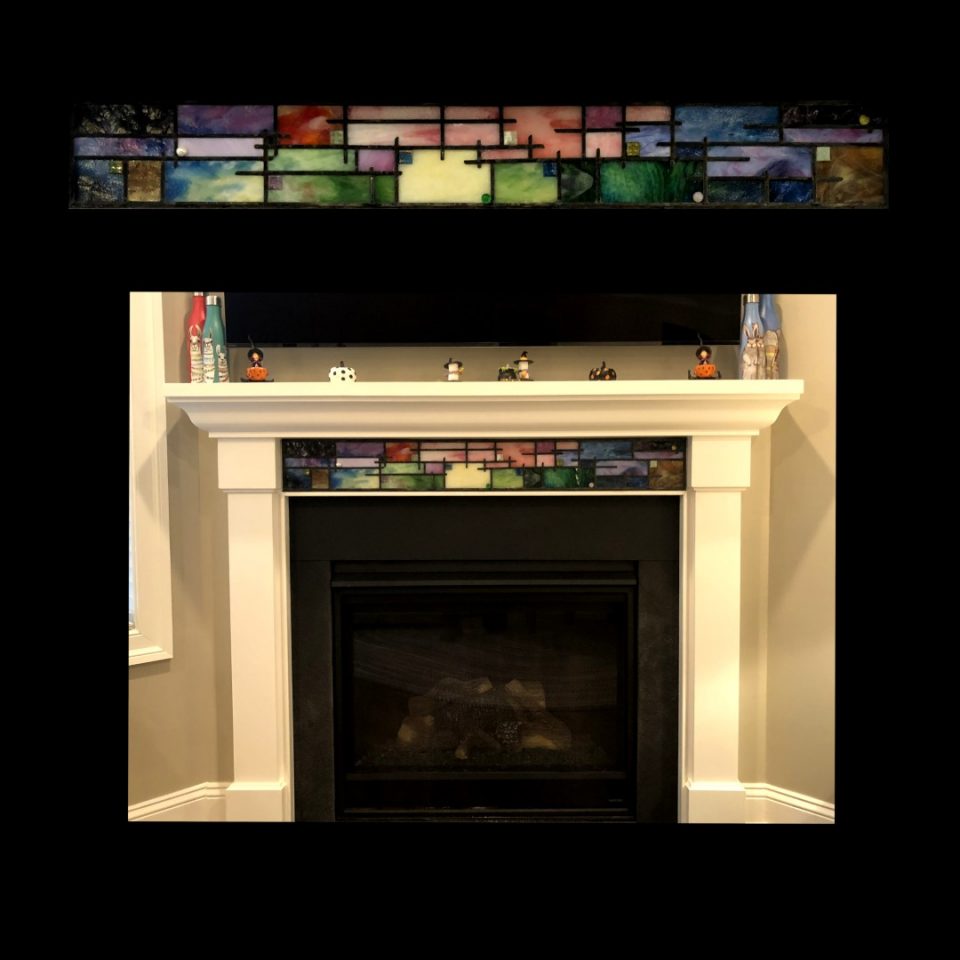
We rarely get a project where we’re only working with reflective light, and this is only the 3rd one I can remember over the last 47 years.
If you look closely, you can see the little tiles and marbles we used to give this window a playful look.
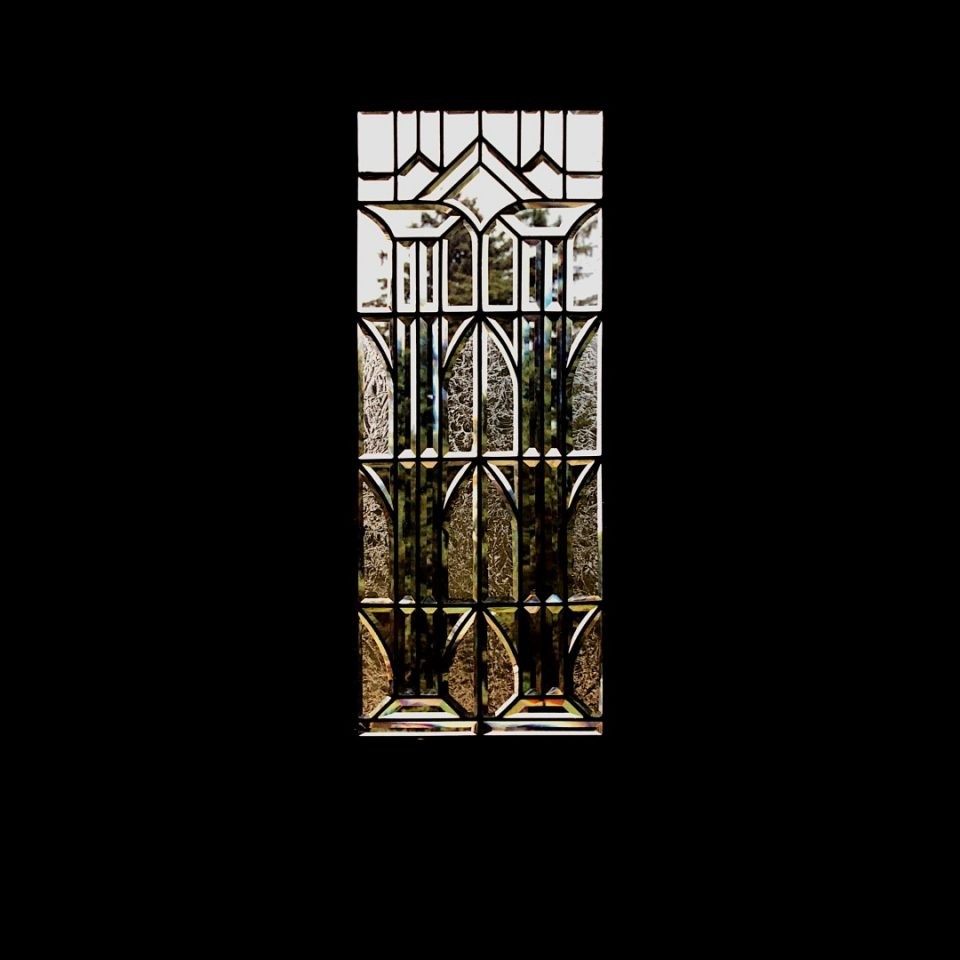
This was a series of 4 windows I created for a home in Richmond, Virginia somewhere around 30 years ago. My intention was to pick up on the design elements in the Tudor home.
This gave me an opportunity to use our 3/8″ thick glass to compliment the heavy interior wood molding and glue chipped glass, for privacy.
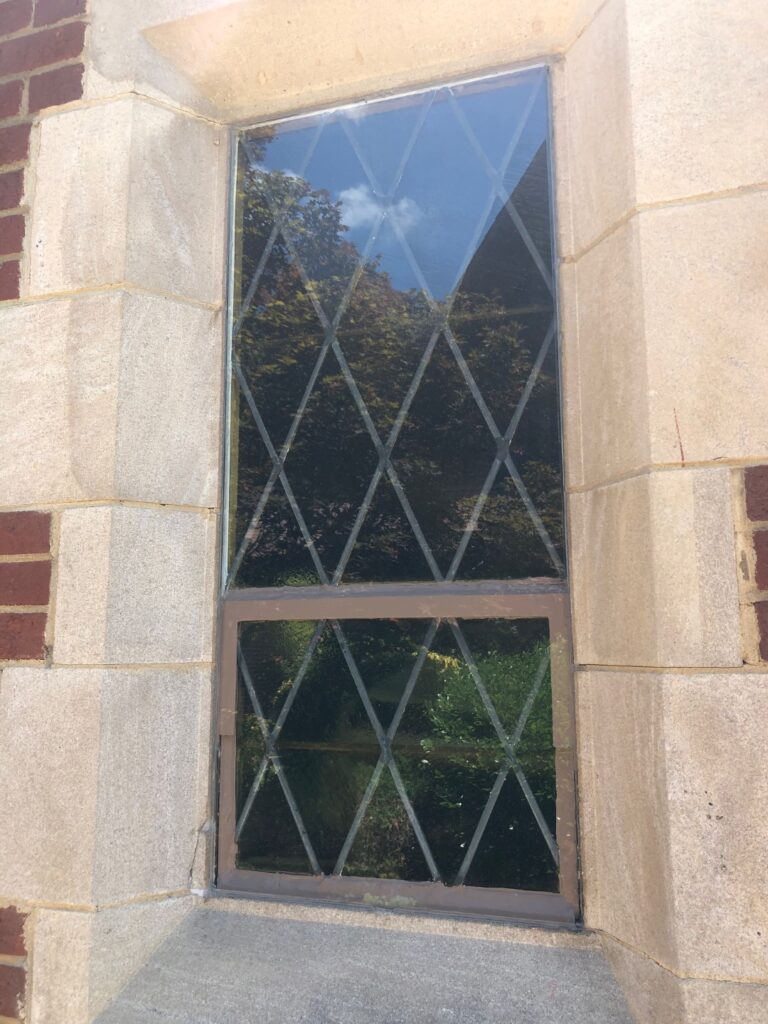
An example of our goal is to preserve the aesthetics of the architecture when installing protective covering.

I’m often asked, “Are you working on any big jobs right now?”
Often, it’s not the size of the job but how well our work blends into the architecture. This was a project we did for Palmyra United Methodist in Palmyra, Virginia, built-in 1830.
Originally the windows had single panes of stained glass. Just by adding a nicer glass and simple mullions, it added so much character to this country church.
Adding a sheet of tempered glass to the exterior sides protects the stained glass and saves considerably on heating and cooling while preserving the aesthetics of the original architecture.